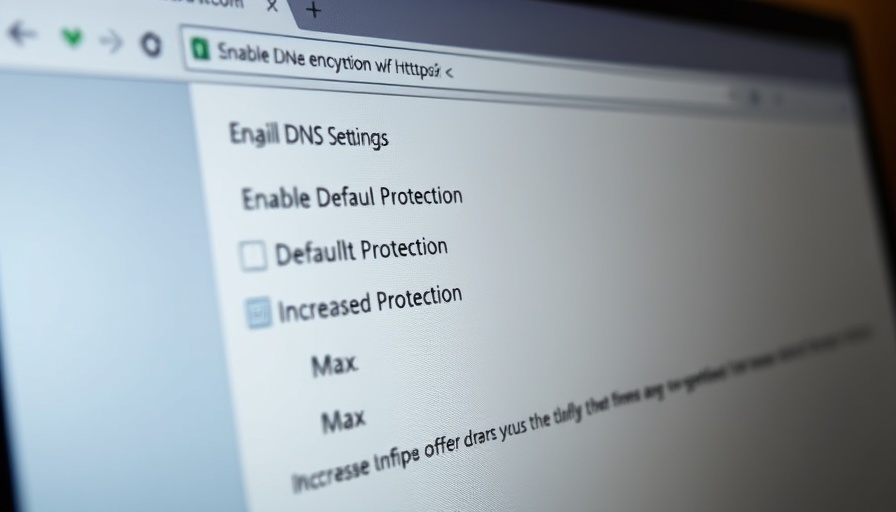
Understanding the Importance of DNS Encryption
When you browse the internet, each domain name you type in needs to be converted into an IP address, a process managed by the Domain Name System (DNS). While this may seem straightforward, the lack of security around typical DNS queries raises serious privacy issues. Every DNS query is generally sent unencrypted, exposing it to a variety of prying eyes—including your Internet Service Provider (ISP), the government, and malicious actors looking to harvest user data.
The Role of ISPs and DNS Privacy
Your ISP has a vested interest in your DNS traffic. They can analyze this information to gather insights into your browsing habits, which can be monetized. A report by the Federal Trade Commission reveals that ISPs have been known to manipulate DNS queries to inject ads or redirect users to unintended sites. This potential for exploitation underscores the necessity of using DNS encryption protocols to safeguard one's online privacy.
Examining Major DNS Encryption Protocols
While encrypting your DNS queries can significantly enhance your privacy, it’s essential to understand that not all encryption protocols provide the same level of protection. The two key players in this field are DNS over HTTPS (DoH) and DNS over TLS (DoT).
DoH encrypts DNS requests and sends them via HTTPS, making it difficult for ISPs to recognize DNS traffic among regular web traffic. This is especially user-friendly as it can be easily enabled in modern browsers like Chrome and Firefox.
On the flip side, DoT operates over a dedicated port, making it easier for firewalls to block it if they choose. While it does offer strong encryption, its implementation is generally more technical and less adaptable to everyday use.
Emerging Standards: Oblivious DoH (ODoH)
The latest innovation in DNS encryption, Oblivious DoH (ODoH), specifically addresses the trust issues associated with traditional DoH and DoT. By routing requests through a proxy, ODoH separates the IP address of the requester from the encrypted DNS queries, creating an additional layer of privacy. This is an essential development as it fulfills the promise of encryption while minimizing the risk of data exposure at the resolver level.
Practical Steps for Enhanced DNS Security
To better protect your online identity, consider implementing one of the encryption protocols discussed. For most users, DoH may offer the simplest solution, as it is often preconfigured in browsers and integrates seamlessly with regular internet traffic. However, for more tech-savvy users, DoT or ODoH may provide additional benefits by further squeezing your ISP’s access to your data.
Lastly, examine the DNS resolver you’re using; opting for trusted public resolvers like Cloudflare or Google can ensure your queries are being handled securely. Not only does this keep your data private, but it also minimizes the risk of exposure to malicious third parties.
Conclusion: Empower Yourself with Knowledge
Understanding the ins and outs of DNS encryption is critical in today’s digital landscape. By choosing the right protocols and resolvers, you can significantly mitigate the risks associated with unencrypted DNS queries. Remember: knowledge is power, and staying informed about your online privacy can make all the difference.
 Add Row
Add Row  Add
Add 




Write A Comment